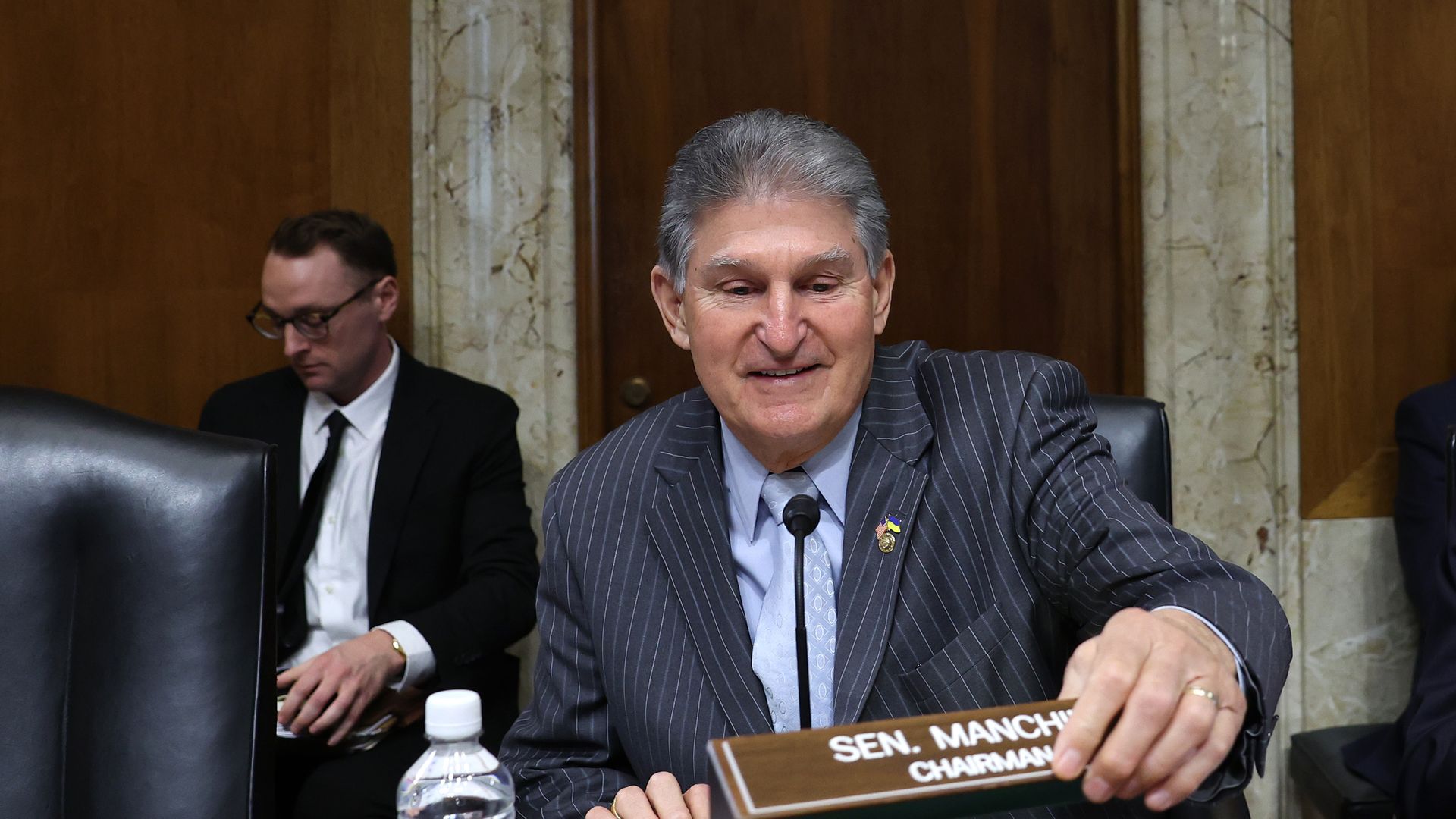
Sen. Joe Manchin. Photo: Kevin Dietsch/Getty Images
Sen. Joe Manchin has asked to review Ford's contract with a major Chinese battery supplier.
Why it matters: Manchin's earlier concern about the deal is now becoming real oversight.
Driving the news: He told Axios in the Senate subway that he asked Ford "for the contract" involved in a deal announced this week for a $3.5 billion EV factory in Michigan that will use technology from Contemporary Amperex Technology Co. Limited (CATL), a Chinese firm.
- Virginia Gov. Glenn Youngkin said last month he didn't want it located in his state, claiming the CATL connection posed a national security risk. Ford said at the time a final decision on the location had not yet been reached.
- The Senate Energy and Natural Resources chairman released a vague statement after the deal: “Ford has serious questions to answer before Sen. Manchin can fully evaluate the business partnership.”
- Now we know what he meant: He wants the text of the deal.
- "I've already talked to the Ford officials. They're sending us everything. They've been very cooperative," Manchin told Axios.
Between the lines: Manchin has sought many avenues to curb China's involvement in the U.S. energy transition, including with mineral sourcing language in the Inflation Reduction Act's consumer EV tax credits.
- Right now, he's regularly venting about how widely Treasury is applying those credits.
What they're saying: Other Democrats have taken a more positive view of the Ford plant.
- "I have a broader concerns generally about China, but I think we have to recognize that as we onshore manufacturing capacity, it doesn't all happen overnight. You actually have to take steps, and this is a step," Sen. Martin Heinrich, an ENR member, told Axios.
- Ford didn't immediately respond to a request for comment.
Quick take: It's unclear what Manchin can actually do to stop this — but he sure can keep it in the headlines.
- Manchin said he isn't sure whether he'll hold a hearing on the Ford-CATL deal.
Editor's note: This story has been corrected to reflect that while Youngkin said he did not want Ford to locate its plant in his state, he did not actually veto it.

